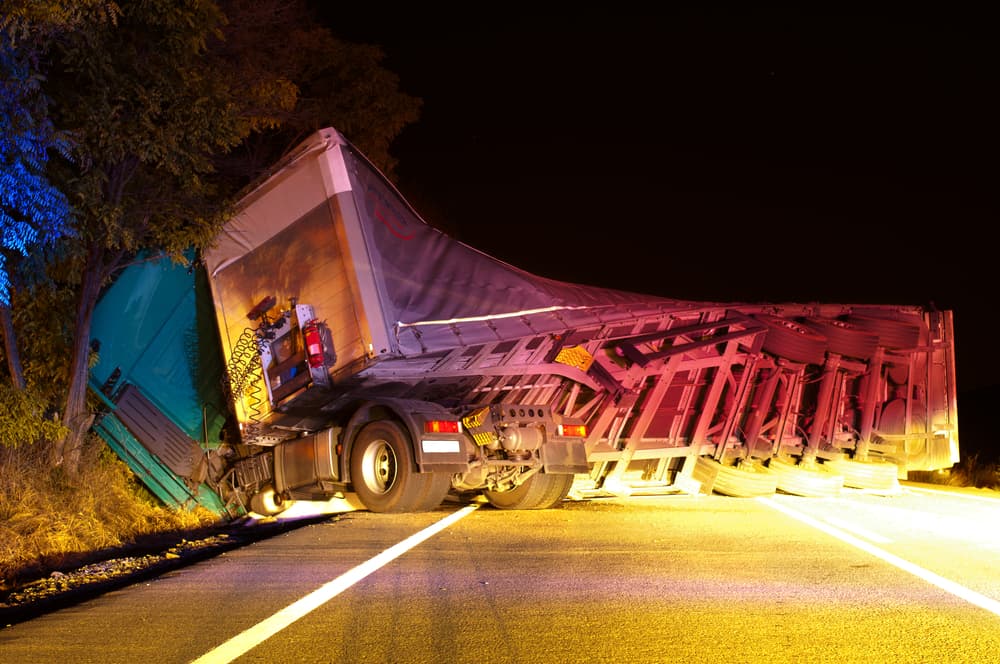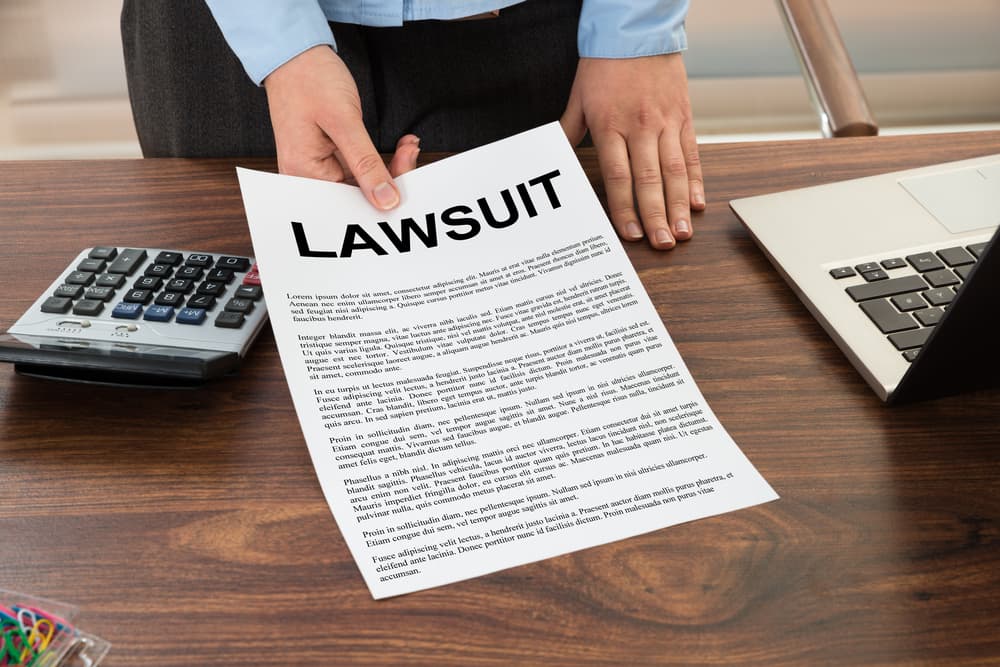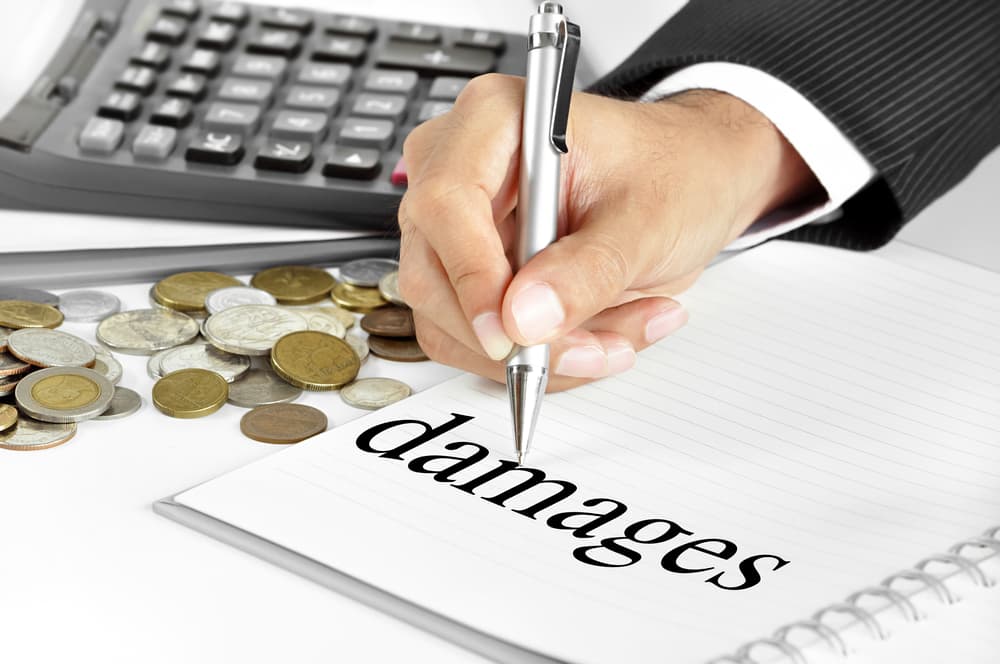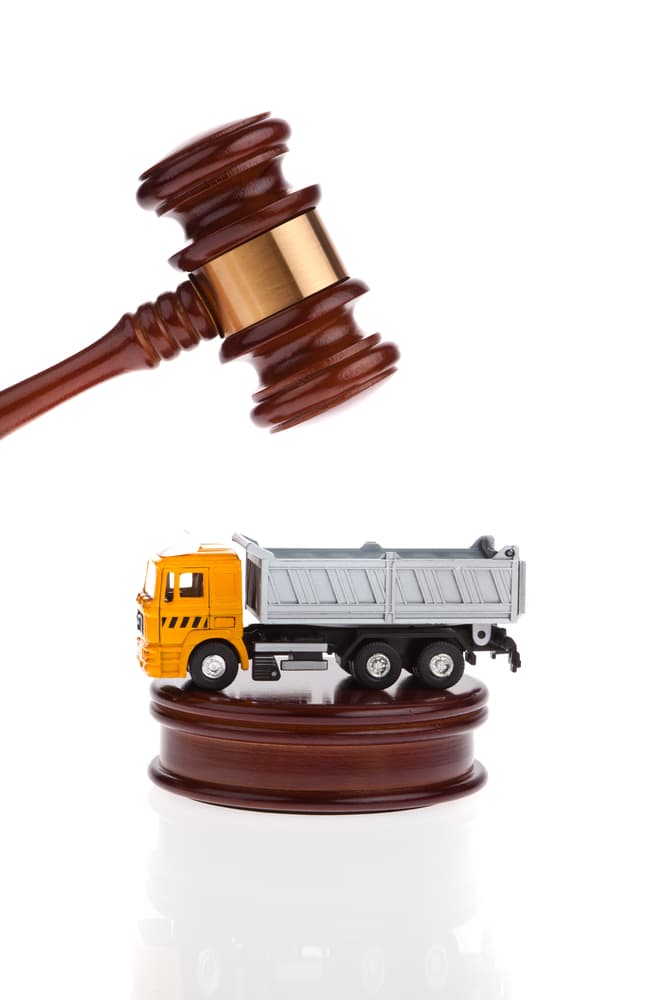Truck accidents are among the most devastating road traffic incidents, often resulting in significant injuries, extensive property damage, and, tragically, fatalities. This often gives rise to lawsuits.
Given the complexity of the commercial trucking industry, including stringent federal and state regulations, truck accident claims can be particularly challenging to navigate.
Truck accident lawyers at DJC Law has decades of experience helping victims of truck accidents understand their rights and the circumstances under which a lawsuit may be warranted. This blog post explores various types of truck accidents that frequently lead to legal action.
Types of Truck Accidents
Truck accident lawsuits often arise in certain types of accidents. These include:

Rear-End Collisions
Rear-end collisions involving commercial trucks can lead to severe injuries, primarily due to the massive force of impact associated with the size and weight of trucks. When a truck crashes into the back of a passenger vehicle, the occupants of the smaller vehicle bear the brunt of the collision.
These accidents often result from driver fatigue, distracted driving, or failure to maintain a safe following distance. Victims may pursue lawsuits for compensation related to medical bills, rehabilitation costs, lost wages, and pain and suffering.
Jackknife Accidents
Jackknife accidents, where the trailer swings out and forms a 90-degree angle with the truck cab, can lead to multi-vehicle pile-ups, causing widespread injury and damage. Such incidents may stem from improper braking techniques, equipment failure, or hazardous road conditions.
Lawsuits following jackknife accidents typically involve complex investigations to determine negligence, whether on the part of the driver, trucking company, or even manufacturers of faulty equipment.
Underride Accidents
Underride accidents occur when a smaller vehicle gets trapped under a truck's trailer, often resulting in catastrophic outcomes. These accidents can be due to insufficient lighting or reflectors on the truck, abrupt stops by the truck, or lack of underride guards. Legal action in these cases can address the need for compensation for victims and also highlight the importance of improved safety regulations for commercial trucks.
Rollover Accidents
Truck rollovers are not only dangerous for the truck driver but also pose a significant risk to all nearby road users. Overloading, improper loading, speeding, and driver error are common causes. Rollover accidents often lead to lawsuits when negligence in adhering to safety standards and regulations is evident, including violations related to cargo securement, vehicle maintenance, and driver training.
Lost Load Accidents
When cargo is improperly secured and falls off a truck, it can create immediate hazards for other vehicles, leading to accidents, injuries, or deaths. Victims may file lawsuits against trucking companies, cargo loaders, or others responsible for ensuring the secure transport of goods. These cases emphasize the critical nature of cargo securement and the potential consequences of negligence.
DUI-Related Truck Accidents
Driving under the influence of alcohol or drugs is a serious offense for any driver, but it's especially egregious for commercial truck drivers due to the potential for harm. DUI-related truck accidents can lead to lawsuits seeking not only compensatory damages but also punitive damages, given the reckless disregard for safety.
Do I Have Grounds to Bring a Truck Accident Lawsuit?

Negligence plays a central role in personal injury cases, acting as the legal foundation upon which many claims are built. It is based on the principle that individuals and entities have a duty to act in a manner that does not cause harm to others. When this duty is breached, resulting in injury or damage, the negligent party can be held legally responsible for the consequences of their actions.
In personal injury law, proving negligence is crucial for victims seeking compensation for their injuries, losses, and suffering.
Four Elements of Negligence in Truck Accident Cases
To establish negligence in a truck accident case and have a successful claim, you must clearly demonstrate:
- Duty of Care: The plaintiff (the injured party) must prove that the defendant (the party being sued, which could be the truck driver, trucking company, or another entity) owed them a duty of care. In the context of truck driving, this duty is inherent; drivers and their employers are obligated to operate their vehicles safely and obey traffic laws to prevent harm to other road users.
- Breach of Duty: Once a duty of care is established, it must be shown that the defendant breached this duty. A breach could occur in various ways, such as a truck driver operating the vehicle while fatigued, under the influence of alcohol or drugs, or violating traffic laws. Similarly, a trucking company might breach its duty by failing to maintain vehicles properly, overloading trucks, or not adhering to regulations governing driving hours.
- Causation: The breach of duty must be directly linked to the plaintiff's injuries. This means the plaintiff must demonstrate that their injuries would not have occurred if not for the defendant's negligent actions. Establishing causation can be complex, particularly in truck accidents involving multiple vehicles or factors.
- Damages: Finally, the plaintiff must prove that they suffered actual damages as a result of the accident. Damages can be physical, such as injuries requiring medical treatment, or they can be financial, such as lost wages from being unable to work. Non-economic damages, including pain and suffering, may also be considered.
Successfully proving these four elements requires a comprehensive understanding of the law, a meticulous gathering of evidence, and often the support of expert testimony. In truck accident cases, where the damages can be significant, and the legal landscape complex, the assistance of an experienced personal injury attorney is invaluable.
These professionals can navigate the intricacies of the legal system, advocate on the victim's behalf, and help ensure that justice is served, allowing the injured party to focus on their recovery.
What Compensation is Available to Truck Accident Victims?

Compensation available to truck accident victims can vary significantly depending on the specifics of the accident, the extent of the injuries, and the liability of the involved parties. Generally, the compensation aims to cover both economic and non-economic damages. Here's a breakdown of the types of compensation that may be available:
Economic Damages
These include monetary losses, such as:
- Medical Expenses: This covers all medical-related costs, including hospital stays, surgeries, medication, physical therapy, and any future medical treatments or rehabilitation needed due to the accident.
- Lost Earnings: Compensation for the income lost while recovering from the accident. This also includes loss of earning capacity if the victim is unable to return to their previous job or work at the same capacity as before the accident.
- Property Damage: Compensation for the repair or replacement of your vehicle and any other personal property damaged in the accident.
- Out-of-Pocket Expenses: Reimbursement for any other expenses related to the accident, such as travel to medical appointments, home modifications for disabilities, and other miscellaneous costs.
Non-Economic Damages
These include losses for which there is no dollar value.
These include:
- Pain and Suffering: Compensation for the physical pain and emotional distress suffered as a result of the accident. This includes compensation for ongoing discomfort, scarring, disfigurement, and the impact on the victim's overall enjoyment of life.
- Emotional Distress: Specifically addressing the psychological impact of the accident, such as anxiety, depression, post-traumatic stress disorder (PTSD), and other mental health issues.
- Loss of Consortium: Compensation awarded to the spouse or family members of the accident victim for the loss of companionship, affection, and support due to the injuries sustained.
Special Considerations for Truck Accidents
In truck accident cases, determining liability and navigating the complex web of state and federal regulations governing the trucking industry can significantly influence the compensation process. The involvement of multiple parties, such as the truck driver, trucking company, cargo loaders, and parts manufacturers, can also complicate the compensation process.
The trucking company's insurance policies often have higher coverage limits, which can influence settlement negotiations or judgments in these cases.
Given the complexity and the high stakes of truck accident claims, victims often benefit from the representation of an attorney who handles truck accident cases. Such legal professionals can help accurately assess all potential damages, negotiate with insurance companies, and, if necessary, litigate to ensure the victim receives full and fair compensation for their losses.
How Can a Lawyer Help with a Truck Accident Case?

A lawyer who handles truck accident cases can provide essential assistance and representation to individuals affected by a truck accident. Their knowledge is critical in navigating the complex legal and regulatory landscape of trucking accidents.
Here's how a lawyer can help in such cases:
- Investigation and Evidence Gathering: A lawyer can conduct a thorough investigation of the accident to gather crucial evidence. This includes obtaining the truck's electronic logging device data, which records the hours the driver has been on the road, maintenance records of the truck, the driver's employment history and qualifications, accident scene photos, surveillance videos, and witness statements. These pieces of evidence are vital for building a strong case.
- Expert Consultation: Lawyers often work with a network of experts, including accident reconstruction specialists, medical professionals, and industry experts, to strengthen your case. These experts can provide valuable insights into the causes of the accident and the extent of your injuries, which can be instrumental in proving negligence and the impact of the accident on your life.
- Navigating Laws and Regulations: The trucking industry is heavily regulated by state and federal laws, including regulations set by the Federal Motor Carrier Safety Administration (FMCSA). A knowledgeable lawyer will understand these regulations, such as those regarding hours of service, maintenance standards, and load limits, and how they apply to your case. They can identify any violations that may have contributed to the accident.
- Dealing with Insurance Companies: Insurance companies often aim to minimize their payouts. A lawyer can negotiate with the insurance companies on your behalf to ensure you receive fair compensation for your injuries, damages, and any other losses. They have the experience to counter lowball offers and can take the case to trial if necessary.
- Determining Liability: In truck accident cases, multiple parties could be liable, including the truck driver, trucking company, cargo loaders, or even manufacturers of truck parts. A lawyer can identify all potentially liable parties to maximize your compensation.
- Litigation and Trial Representation: If a fair settlement cannot be reached through negotiations, a lawyer can file a lawsuit on your behalf and represent you in court. They will prepare a strong case for trial, including opening and closing statements, examination of witnesses, and presentation of evidence.
- Maximizing Compensation: An experienced lawyer will evaluate all aspects of your damages, including medical expenses, lost wages, loss of future earning capacity, pain and suffering, and more, to ensure you receive the maximum compensation possible.
- Offering Peace of Mind: Having a lawyer handle the legal aspects allows you to focus on your recovery, providing peace of mind during a challenging time.
A lawyer can provide legal guidance, advocate on your behalf, and work tirelessly to secure the compensation you deserve. Having legal representation not only levels the playing field against well-resourced insurance companies and trucking companies but also ensures that your rights are protected throughout the legal process.
Seeking Justice With DJC Law
Each type of truck accident presents unique challenges and requires a thorough investigation to establish liability and negligence. At DJC Law, our team is experienced in navigating the complexities of truck accident claims, working tirelessly to ensure our clients receive the justice and compensation they deserve.

If you or a loved one has been involved in a truck accident, it's crucial to seek legal advice promptly. The personal injury attorneys in Austin at DJC Law are committed to advocating for the rights of truck accident victims, leveraging our experience to guide you through the legal process and achieve the best possible outcome.
For a consultation and to learn more about how we can assist you following a truck accident, contact DJC Law today at (512) 888-9999 or through our online form. Let us help you on your journey to recovery and justice.